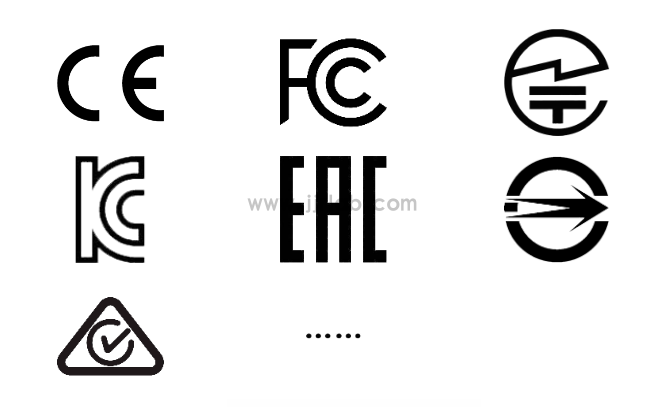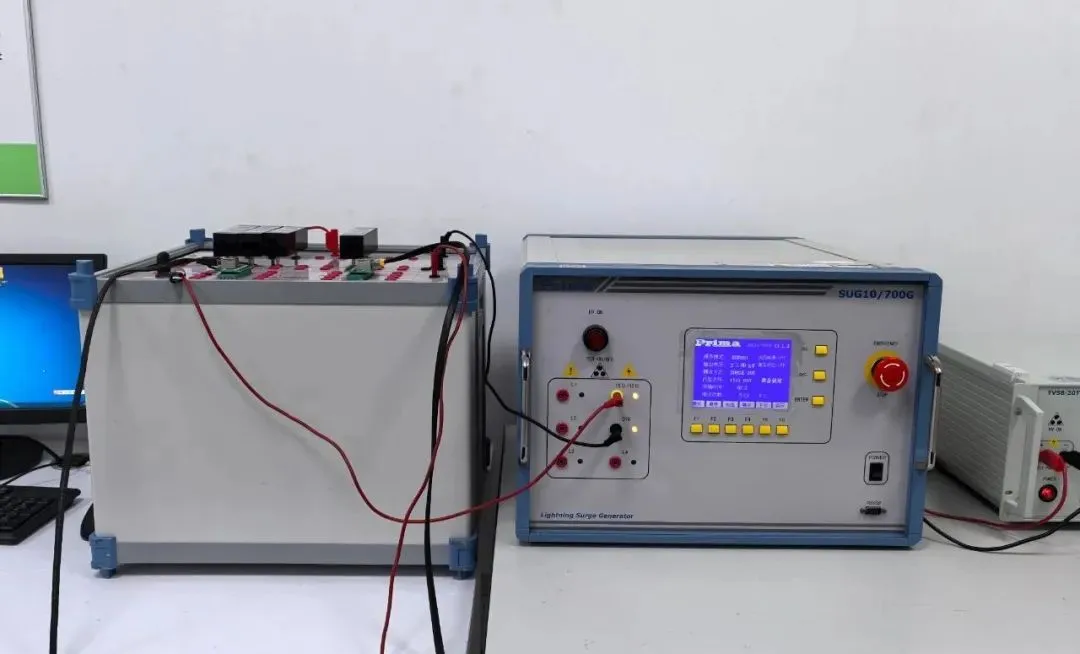
Qi Certification Testing for Wireless Charging Products
In recent years, wireless charging products have become increasingly prevalent in our lives, widely applied in computer peripherals, personal smart devices, home appliances, and in-car equipment. However, these products must navigate one essential certification: Qi Certification.
Qi Certification is launched by the world’s largest wireless charging alliance, the Wireless Power Consortium (WPC). It aims to standardize wireless charging across all devices, making it the most mainstream certification for wireless charging products. However, the cost of an ICO test for Qi Certification is charged per attempt, which has troubled many businesses.
China’s JJR Laboratory, with its extensive experience in Qi registration applications, offers a one-stop service to coordinate testing arrangements and assist clients in obtaining Qi Certification quickly. Let’s take a closer look at the key aspects of Qi Certification.
Wireless Power Consortium (WPC)
The Wireless Power Consortium (WPC) was established on December 17, 2008, as the world’s first industry standards organization for wireless power. WPC developed the Qi international wireless charging standard, which ensures compatibility with all rechargeable electronic devices and continuously promotes its widespread market adoption.
Products certified by WPC are authorized to display the “Qi” logo.
BPP & EPP: The Two Qi Certification Types
In March 2018, WPC implemented the new V1.2.4 Qi Certification Standard. Based on power load requirements, certified products are classified into two categories:
1. BPP (Baseline Power Profile)
2. EPP (Extended Power Profile)
In addition to these, products supporting Samsung Fast Charging Protocol must also undergo the relevant testing.
Compliance & Compatibility: The Two Pillars of Qi Certification
Qi Certification testing consists of two key stages:
1. Compliance testing at an ATL laboratory. Upon passing, proceed to step 2.
2. Compatibility Testing (Qi Interoperability Test) at an IOC laboratory.
Important Notes:
- Note 1: During both steps, clients need to purchase membership and an ID (this ID number is used for listing on WPC’s official website).
- Note 2: ATL (Authorized Test Lab) is a WPC-authorized lab for compliance testing. There are mULtiple ATLs available in China.
- Note 3: IOC (Interoperability Test Center) is a WPC-authorized lab for compatibility testing.
Five Sample Units: What Does Qi Testing Cover?
Clients need to submit five sample units:
- 1 unit is sent to the ATL lab for compliance testing. Once passed, 1 unit is retained by ATL, while the remaining 4 units are divided into two groups and sent to two separate IOC labs for compatibility testing.
Compliance Testing Includes:
- Timing of communication protocols between transmitters and receivers.
- Power output capability through XYZ axis translation testing.
- Maximum energy transfer capacity.
- Foreign Object Detection (FOD).
Compatibility Testing Includes:
- Communication between transmitter and receiver must establish within 3 seconds.
- Under 10%-20% battery charge conditions, the product must sustain charging for 5 minutes.
Additional Notes:
- Note 1: If a test case fails at one IOC lab, another IOC lab will immediately validate the results. If the second lab passes the case, the final result is PASS. If both labs fail the same test case, the result is FAIL.
- Note 2: IOC testing is charged per attempt.

Beyond Qi Certification: Other Requirements for Wireless Charging
Wireless chargers operate on electromagnetic induction principles and generate electromagnetic fields during normal operation. As such, they must also comply with applicable EMC (Electromagnetic Compatibility) requirements. The specific certifications vary by country/region and typically include:
- EMC standards
- RF (Radio Frequency) and communications standards
- Electrical safety standards
To date, over hundREDs of members, including Apple, and approximately 7,700 certified products have obtained Qi Certification. Products registered under Qi Certification not only meet corresponding safety and performance standards but are also compatible with wireless charging devices from various manufacturers.
China’s JJR Laboratory provides a comprehensive one-stop service to help clients quickly obtain Qi Certification. The laboratory is equipped with advanced facilities for EMC, Radio Frequency & Communications, electronic and electrical product safety, environmental reliability, energy efficiency, and physical-cheMICal testing.
Email:hello@jjrlab.com
Write your message here and send it to us
 What is the EN 61326-2-3 Standard?
What is the EN 61326-2-3 Standard?
 Why Do Smart Sockets Need IEC 60884 Certification?
Why Do Smart Sockets Need IEC 60884 Certification?
 Why Retest the Device if the 5G Module Already Has
Why Retest the Device if the 5G Module Already Has
 Overview of IEC 62087 Test Standard
Overview of IEC 62087 Test Standard
 CISPR 25 Test Standard Compliance Guide
CISPR 25 Test Standard Compliance Guide
 IEC/UL/CSA 62368-1 Electrical Distance Testing
IEC/UL/CSA 62368-1 Electrical Distance Testing
 Canada Wireless Device IC Certification RSS-210 Te
Canada Wireless Device IC Certification RSS-210 Te
 FCC Part 15.231 for Wireless Remote Controls and S
FCC Part 15.231 for Wireless Remote Controls and S
Leave us a message
24-hour online customer service at any time to respond, so that you worry!




